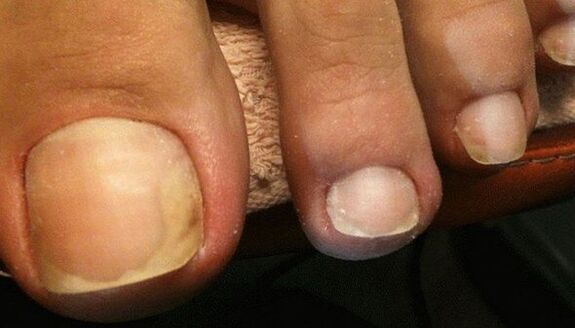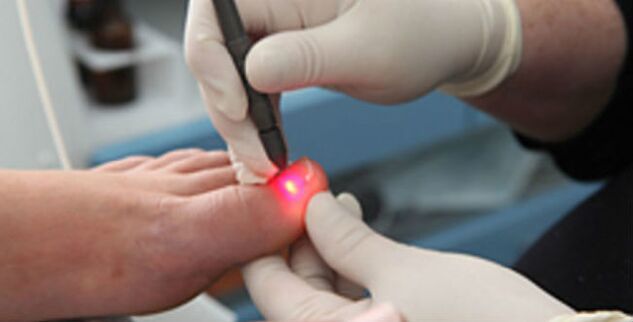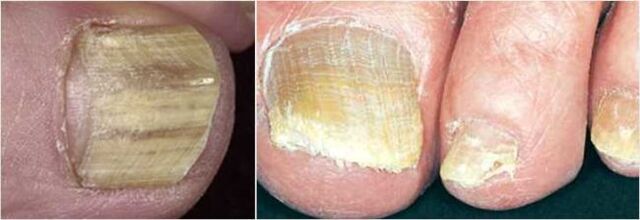Fungus is an infectious disease and most often affects the nails or skin of the legs. You can get infected very easily, the danger is almost everywhere. Since the fungus is essentially an infection, it lives mostly in public places. To exclude the possibility of infection, it is important to know how the pathology is transmitted to humans.
How the infection occurs

The disease always originates due to a humid environment. The main reason will be the constant sweating of the legs.Statistics show that there is a large accumulation of parasites in public places, such as saunas, baths, swimming pools and so on.It is impossible to destroy the causative agent of the infection by drying shoes or feet.
Asking the question of how contagious the fungus is, it can be argued that the pathology passes quite easily from person to person. It is almost impossible to insure against such diseases. Many pathogens are found in public places where people walk barefoot. This means that if a healthy person walks barefoot on the surface where the infected person was previously, in the presence of provoking factors, the disease will immediately begin to progress.
The fungus has a high resistance to various destructive factors, so it remains on surfaces for a long time. On the beaches, the fungus is much less common, as the salt water destroys the pathogen, however the risk of infection remains. Remember to always wear only indoor slippers, socks and shoes.
The first signs of nail fungus and its symptoms

Foot mycosis is always developing, so the first signs of nail fungus can be seen even in the early stages, if you are attentive to the state of your body.The different stages of the fungus differ in their characteristics. If the early stages of the disease can still be skipped due to inattention to oneself, then the latter will clearly make itself felt. Consider the symptoms that appear in the early stages:
- small spots appear on a healthy nail, which differ in their shade from the rest of the plate;
- over time, such spots begin to grow and turn into white spots and streaks;
- later the spots become large and the nail plate loses its luster;
- the plate acquires a yellow tint, sometimes changes to blue or green.
How to determine the pathology at home
If the nail changes color, becomes loose, this does not necessarily mean that it was the fungus that hit it. How does toenail fungus start? To determine a fungal infection at home, iodine and potassium permanganate are used.
- Potassium permanganate.This procedure is quite simple and does not require a lot of free time. Pour lukewarm water into a bowl and add potassium permanganate to make the solution weak. Lower your legs into the pelvis and wait 10 minutes - at this time, healthy nails will turn brown, and those affected by the fungus will remain unchanged.
- Iodine.Unfortunately, this tool does not determine the presence of a pathogenic fungus on the legs. But iodine will indicate the exclusion of other types of fungi, including pityriasis versicolor. If redness, flaking, etc. are visible around the nail. , treats this point with iodine. Healthy tissue will not darken much, but the affected tissue will acquire a rather dark hue.
Treatment
Foot fungus treatment begins with its diagnosis. First, the dermatologist performs a visual examination and then prescribes laboratory tests.Do not forget that it is impossible to stop treatment after the first improvements, because the mushrooms are very resistant, so the disease develops again.
Local therapy
Creams, ointments, lotions, sprays, medicinal paints are used as local preparations. Such drugs well relieve symptoms and destroy superficial foci. Means are actively used in childhood, during pregnancy, as they are absolutely safe. Local therapy is particularly effective in the early stages of the disease.
Medicines

Taking medications increases the effectiveness of topical fungal treatment. The tablets enter the bloodstream and kill the fungus from inside the body.But this method has a number of significant drawbacks.Firstly, the drugs have a number of contraindications, and secondly, they have side effects. It is not possible to take such medicines in all cases. However, the funds are the only solution that will help in advanced cases. To increase the effectiveness of treatment, local remedies, drugs and traditional medicine are used simultaneously.
laser treatment

Laser therapy is becoming more and more popular.The technique has been realized recently and its effectiveness has already been demonstrated.Laser therapy has the following advantages:
- The treatment is safe, the beam treats only the affected tissue. After the event, only healthy tissues remain.
- The procedure is painless and is well tolerated by patients.
- The improvement is evident after the first session.
- About 4 procedures are sufficient to obtain a positive result.
The use of a laser frees the patient from taking harmful drugs and a long course of treatment.
Surgery
In some cases, complete removal of the affected nail is required.Surgery is performed to completely stop the further spread of the infection. This procedure can increase the effectiveness of the use of local funds. Nail removal can be done using special formulations. It is important for a specialist to be careful. So that such a substance does not get into the skin, otherwise it will cause a chemical burn.
Keratolytic patches can help remove the nail plate. Such a tool will soften the nail well, for easy removal. Plasters are used with greater popularity, as they have a dense texture. Then the doctor reduces the likelihood of substances getting on the skin. The patch softens the nail in 2 days, other products last 4 days.
Neglected form therapy

With the advanced stage of toenail fungus, you should not despair, it is enough to follow the following rules:
- Determine and remove the cause of the infection.
- Constantly disinfect shoes or even change all pairs. Purchase antifungal shoe sprays.
- Update your socks.
- Pass all necessary tests and follow the treatment regimen prescribed by a dermatologist.
- Observe all dietary restrictions.
Therapy at this stage should be carried out in a complex mode. In addition to local remedies, they connect effective drugs that act on the fungus from the inside, and also use traditional medicine. With the latter, you need to be careful and take into account the existing allergic reactions to one or another component.
Variety of forms of mycosis
Foot fungus is divided into several types, which depend on the pathogen. Among these types it is worth noting:
- Rubromycosis.Symptoms of this type are peeling of the skin, dryness, excessive sweating, cracked and broken nails.
- Epidermophytosis.The fungus destroys the nail by destroying the keratin it contains. This type of fungus is very difficult to cure, it is resistant to low temperatures, antiseptics, drying and other manipulations. For a long time, the fungus is able to reproduce. Signs of this form are redness of the skin, severe itching, peeling, the base of the nail exfoliates.
- candidiasis.The disease is caused by several types of fungi. The nail plates of the 3rd and 4th fingers are affected. The initial stage is characterized by mild inflammation. Subsequently, edema is connected, a change in shape and thickness leads to the fact that the cuticle begins to tear. After such processes, the fungus enters the bed itself and spreads over the entire nail area. In this case, the development of onycholysis begins.
Disease prevention

Doctors and scientists say there are about one and a half million species of fungi in the world. Only half of them have been studied, while the selection of treatment for them is quite complicated.The ideal solution would be only laser therapy, which will favorably affect any type of fungus.
To prevent infection with this unpleasant disease, it is important to follow the rules of prevention. Measures to prevent pathology are quite difficult, but they do not require financial costs. There are 2 main ways to protect yourself from finger fungus:
- personal hygiene and caution in public places;
- prevention with the help of special medicines.
If you like to visit common places like baths, saunas or swimming pools, make sure you wash your feet thoroughly when you get home.Also, dry your feet, as the fungus is very tenacious and especially loves a humid environment. Buy only socks made of cotton fabric. This material absorbs moisture well, which is released when the feet start to sweat. When closed-toe feet sweat a lot, ventilate them periodically if possible.
If you go to the store to buy shoes, get your footprint or sock from home, don't try on shoes with bare feet or use public footprints. Get regular foot care such as pedicures and other treatments. Do not use shared toilet articles. You must bring your own foot towel. Well, if someone in your home is infected with a foot fungus, avoid contact with it in every possible way, assign individual household items to the patient.
























